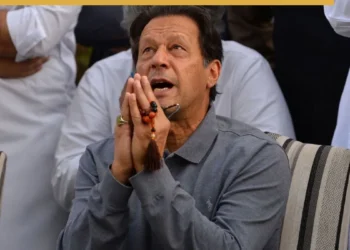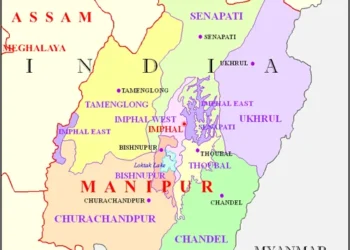India’s public support for the Dalai Lama’s sole authority in choosing his successor has drawn a sharp rebuke from China, which considers the issue a purely internal affair governed by Chinese law and historical convention
BY PC Bureau
July 4, 2025 – China’s Foreign Ministry on Friday issued a strong statement urging India to cease using Tibet-related issues to interfere in its internal affairs, cautioning that such actions could impede the development of bilateral ties. This stern warning followed remarks by a senior Indian minister on Thursday, who asserted that only the Dalai Lama and his designated trust possess the authority to identify his successor, a stance that directly challenges Beijing’s long-standing claim of historical right to approve the spiritual leader’s reincarnation.
China’s Official Stance and Historical Claims During a press briefing in Beijing, Chinese Foreign Ministry spokesperson Lin Jian addressed the contentious issue. According to a transcript from the Ministry of Foreign Affairs of the People’s Republic of China, Lin stated, “The issue of Tibet is purely China’s internal affair, and no external forces have the right to interfere. The reincarnation of the Dalai Lama must follow Chinese laws and regulations, religious rituals, and historical conventions.” He further urged India “to stop using Tibet-related issues to interfere in China’s domestic affairs and to avoid actions that could affect the healthy development of China-India relations.”
READ: India Backs Dalai Lama’s Right to Choose His Successor
READ: Honoring a Life of Light: Celebrations Across Continents for Dalai Lama at 90
Beijing’s consistent position underscores its view that the selection of the Dalai Lama’s successor is a matter of national sovereignty, governed by Chinese laws and historical practices dating back to the Qing Dynasty. China maintains its authority to approve the Dalai Lama’s reincarnation as a legacy of imperial edicts from the 18th century, which required Tibetan religious leaders to be recognized by the central government. In 2007, China’s State Administration for Religious Affairs further formalized this stance with regulations requiring government approval for the reincarnation of living Buddhas, including the Dalai Lama.
India’s Contradictory Position Indian Minority Affair minister Kiren Rijiju’s comments on July 3, 2025, mark a rare public challenge to China’s claims regarding the Dalai Lama’s succession. The unnamed minister was quoted as stating, “The authority to identify the successor of the Dalai Lama rests solely with His Holiness the Dalai Lama and the trust he has established. No external entity has the right to impose its will on this sacred process.” Rijiju said.
This statement aligns squarely with the position of the 14th Dalai Lama, Tenzin Gyatso, who has resided in exile in India since 1959 after a failed uprising against Chinese rule in Tibet. The 90-year-old spiritual leader has repeatedly affirmed that his successor will be chosen in accordance with Tibetan Buddhist traditions and could potentially be found outside Tibet, possibly in India, should he pass away in exile. In a 2011 statement, the Dalai Lama clarified, “The person who reincarnates has sole legitimate authority over where and how he or she takes rebirth and how that reincarnation is to be recognized. It is a reality that no one else can force the person concerned, or manipulate him or her.”
READ:READ: Special Report | The Mate Case (Part 1): NIA Goof-Up, Bail, and Rearrest
The Indian minister’s remarks also reflect India’s broader support for the Tibetan exile community, which is based in Dharamsala, India. The Central Tibetan Administration (CTA), or the Tibetan government-in-exile, has consistently argued that the Dalai Lama’s succession is a religious matter, free from political or external interference.

Background and Geopolitical Context The Dalai Lama, a globally revered figure, serves as the spiritual leader of Tibetan Buddhism. His eventual succession has emerged as a significant flashpoint in China-India relations due to the geopolitical sensitivities surrounding Tibet. China considers Tibet an inalienable part of its territory and views the Dalai Lama as a separatist figure, despite his advocacy for a “Middle Way” approach that seeks greater autonomy for Tibet within China rather than full independence.
Beijing’s claim to control the Dalai Lama’s succession is rooted in historical precedents, most notably the Qing Dynasty’s “Golden Urn” system, under which candidates for high lamas were drawn from an urn under imperial supervision. India, on its part, has provided safe haven for the Dalai Lama and the Tibetan exile community since 1959, allowing the CTA to operate and the Dalai Lama to maintain a global platform. India’s support for Tibetan cultural and religious autonomy has frequently strained its relations with China, particularly amidst periods of heightened border tensions, such as the 2020 Galwan Valley clash.
Implications for China-India Relations China’s Foreign Ministry statement on July 4, 2025, underscores its sensitivity to any perceived challenge to its sovereignty over Tibet. By categorizing India’s comments as interference, Beijing is signaling its intent to protect what it considers a core national interest. The ministry’s call to “avoid affecting the development of ties” suggests a desire to prevent escalation, especially as both nations have sought to stabilize relations following years of border disputes.
READ: No Peace Without Alternate Roads: Kuki Rights Group Warns Centre
However, India’s public assertion of the Dalai Lama’s authority over his succession could complicate ongoing diplomatic efforts. The Tibetan issue remains a contentious point in bilateral relations, alongside unresolved border disputes in regions like Ladakh and Arunachal Pradesh, which China claims as part of southern Tibet. Analysts suggest that India’s statement may be a strategic move to assert its position on Tibetan religious freedom while signaling support for the exile community amid ongoing domestic and international scrutiny of China’s policies in Tibet.
International Reactions and Broader Context The Dalai Lama’s succession is not merely a bilateral issue; it holds global interest given his role as a spiritual leader and advocate for peace. The United States has openly supported the Dalai Lama’s right to determine his successor. In 2020, the U.S. passed the Tibetan Policy and Support Act, which includes provisions for sanctions against Chinese officials who interfere in the succession process. At the time, a U.S. State Department spokesperson affirmed, “The United States supports the right of Tibetans to select, educate, and venerate their own religious leaders, including the Dalai Lama, without interference.” Other nations, including Canada and the European Union, have also voiced support for Tibetan religious autonomy, though generally stopping short of explicitly challenging China’s claims over the succession process.
China’s demand for India to cease using Tibet-related issues to interfere in its domestic affairs highlights the persistent tensions surrounding the Dalai Lama’s succession. The Indian minister’s assertion that only the Dalai Lama and his designated trust have the authority to name his successor directly contradicts Beijing’s historical and legal claims, potentially setting the stage for renewed diplomatic friction. As the Dalai Lama ages, the question of his succession will likely remain a critical issue in China-India relations, with broader implications for regional stability and the global Tibetan diaspora.













